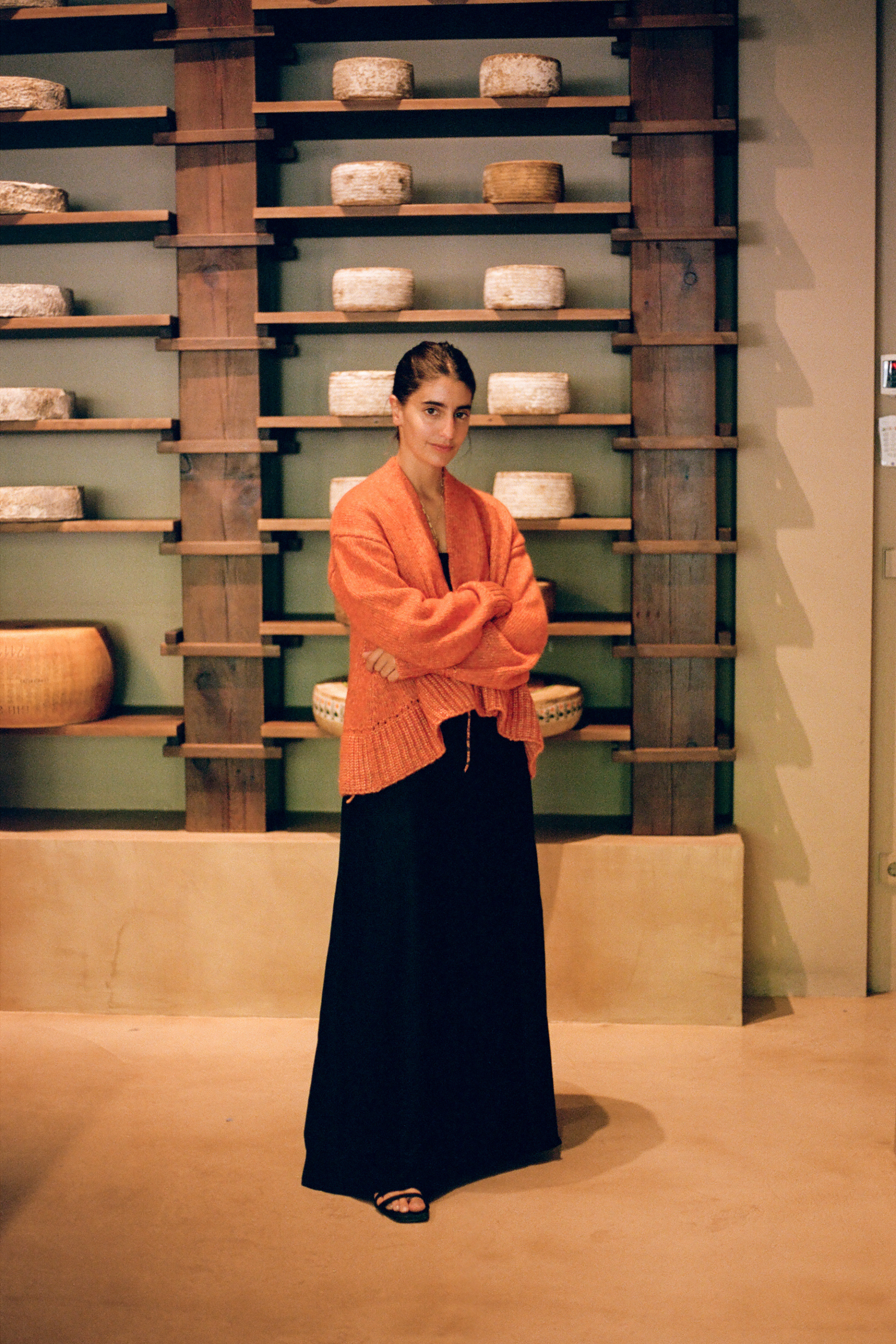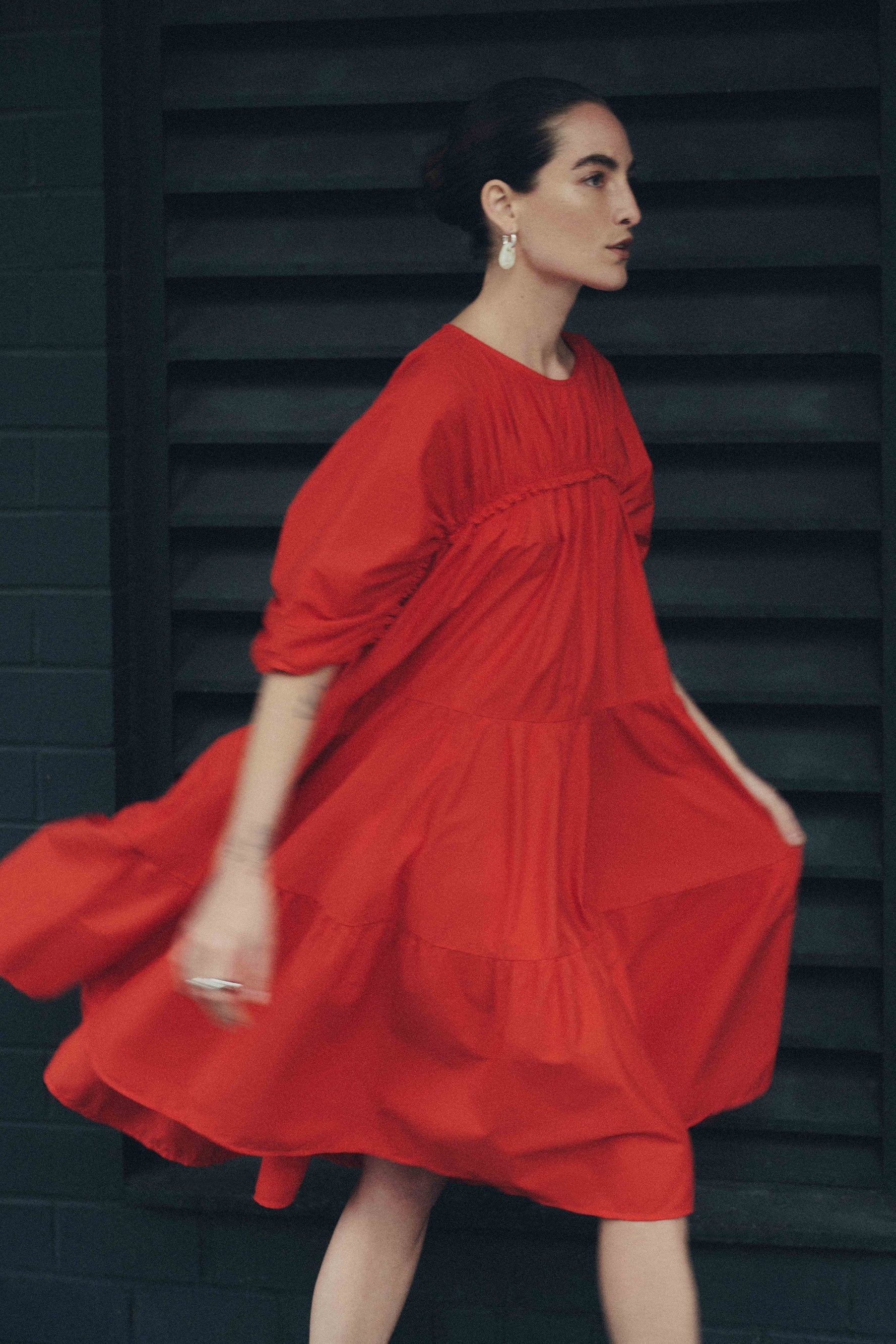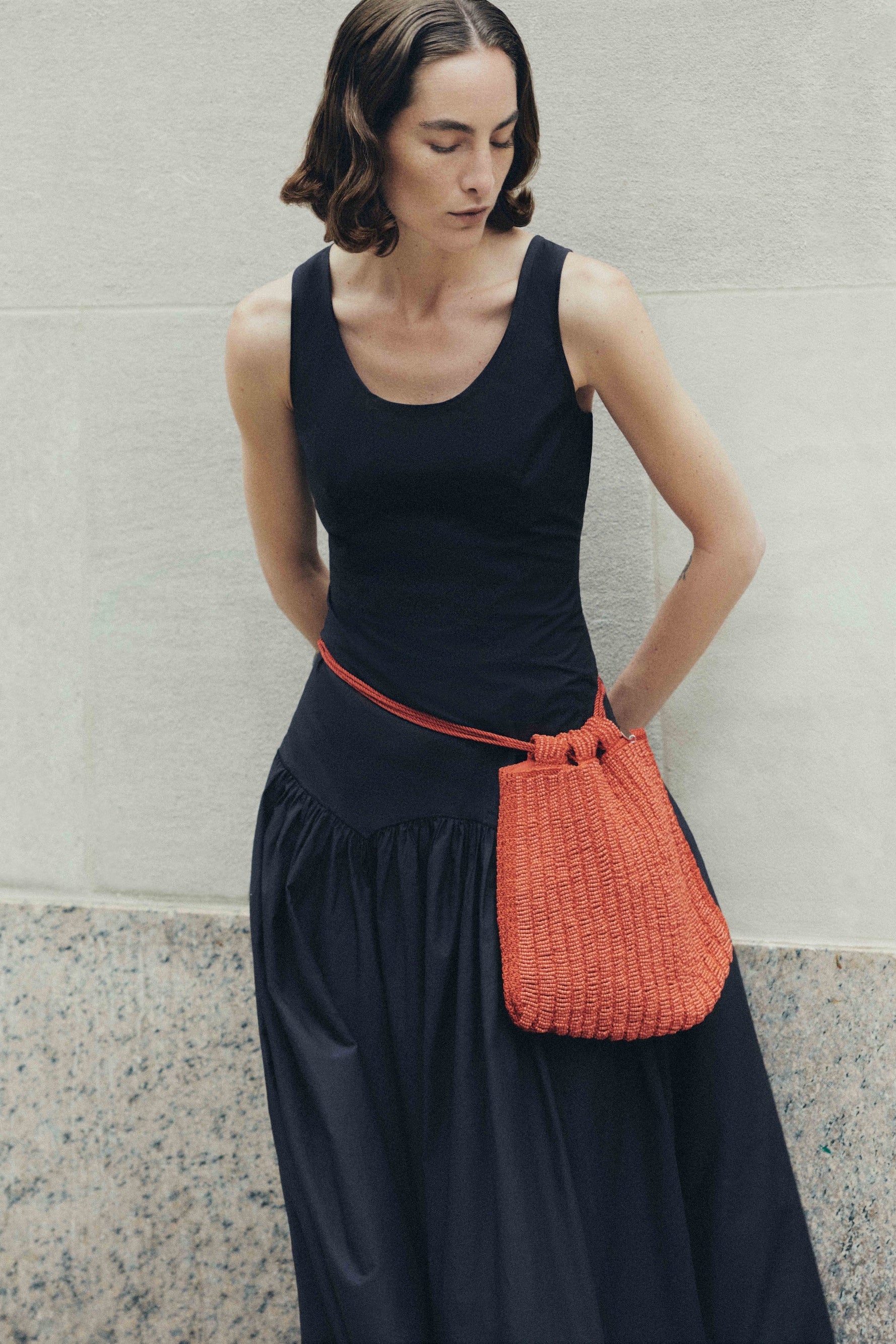Creative Closeup: Clara Diez

Welcome to Creative Closeup, an ongoing series where we spend time with inspiring women learning about their creative practice, the spaces they inhabit and how their work influences their style choices.
This month, our conversation led us to Spain, where Clara Diez’s passion for natural cheese has led to the creation of Formaje, her artisanal cheese business, as well as being internationally recognized for her work. We’ve been long intrigued by her activism (along with her simply elegant style) and are delighted to share her insightful thoughts about female entrepreneurship, respecting materials, and of course, cheese.
Q: How would you define cheese activism?
A: For me, activism refers to a commitment to the sector in which you move, with a focus on its defense and preservation. Since I started working with artisan cheese eight years ago, I felt that I was getting involved in a sector in which everything was still to be done: although cheese culture is present in practically all regions of the world, the perception of the world of cheese from outside is an old, stale and uninteresting one. That is how I perceived it too until I got to know it from the inside. A universe that I had always perceived as gray was now opening up to me, full of colors. This effort to talk about all the nuances and complexity involved in the production of artisan cheese, as well as the importance of its preservation for the environment, and the difference between artisan and industrial production, is what makes me think that all those involved in rejuvenating and making this sector more accessible to the world are activists in some way.
Q: Is it possible for you to pick a favorite cheese? Does it change for you?
A: It is not possible for me, in fact! They always ask me, but it is something very variable and on each occasion, I refer to a different cheese. The reality is that I don't have a favorite cheese, but at a certain moment, I can try a specific batch that I fall in love with, and then it becomes my favorite for a while. Let's say it's more linked to the moment, or to a cheese from a particular batch, than to a generic one. Cheese is very variable, and I believe that our perception of it also evolves, determining our taste.
Q: What do you want people to know about natural and artisan cheese?
A: That the cheese we consume should be as similar as possible to how it was accidentally produced in the past: milk, rennet, lactic ferments, and salt (originally, not even rennet). Cheese is a product that arises from the acidification of milk, giving way to a coagulation that separates the solid part from the liquid. It has nothing to do with additives, flavorings, or anything else. The most interesting thing about cheese is that, depending on the place where it originated, a specific typology began to develop, closely linked to the weather conditions of the place, the amount of milk available and the type of livestock, the development of other practices such as craftsmanship (which gave rise to the first cheese making, in ceramic containers...). Cheese allows us to pull on a thread that takes us far back in the history of human beings, it is a way of understanding societies and the passage of time, as well as, obviously, their diet.
Q: How does the food culture of Spain influence your work?
A: I think in all senses, because the culture of my country, my culture, also defines the possibilities for the development of my own business. Talking about cheese in a way that is attractive in our own culture defines our project, although it is true that Formaje has a fairly international vocation.
Q: If you could eat cheese anywhere in the world, where would it be?
A: In a house with a lake in the English countryside
Q: How does working with food influence your style?
A: Highly valuing the raw materials used to make a product. It is very comforting to know the origin and the hands behind a product, whether it is cheese or clothing. For me, having traceability, and knowing that I am choosing my clothes according to a specific coherence, is very comforting and defines me personally. I believe that our purchasing choices define us personally.
Q: What draws you to Merlette?
A: The design, which reminds me a lot of Japanese style, with light and airy materials and basic colors that could be present in nature. I found it very pleasant to perceive when I tried the first garment, that the sensation of lightness that the garments transmit in the images, is the same when you feel them in reality.
Q: As a female entrepreneur, what does it mean to you to work with female-founded brands?
A: It's nice because I feel that among women we speak the same language, and there is a rhythm and cadence present in the conversations established between women that helps everything flow naturally. I love the ease we women have to share and help each other, I think it's very powerful. I love being around women who inspire me, I really enjoy it.
Q: How would you describe your personal style?
A: I like neutral colors (I've always seen beige, white, black, navy blue...) and wide garments, which allow me to move with agility and don't cling to the body. I don't like clothes that are too close to the body, on the contrary. My favorite materials are linen, cotton, cashmere, and silk, and I never wear prints, only vertical stripes on shirts, for example. I really like to feel that my clothes have a slightly masculine touch, although I don't like that it seems that "masculine" dressing has become an attribute... and in reality, it's not, it's simply a stylistic question with which I feel slightly identified. Anyway, I like more and more that the ''feminine'' part is more present when it comes to dressing, sometimes it can be evoked simply by choosing the right accessories.
Photographed by Justino Diez










